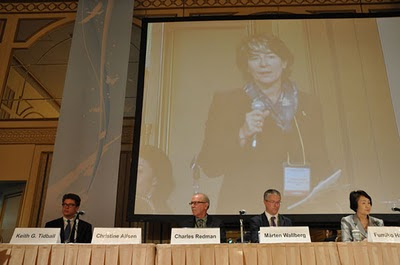Click here for a journal article about UR
 BIS.
BIS.
 BIS.
BIS.




October Anthropology News In Focus commentaries on disaster relief and recovery are now posted on the American Anthropological Association's Current Featured News page, free to the public throughout the month. This month’s In Focus articles are by Susanna M Hoffman; Jane Henrici; Miriam S Chaiken; Roberto Barrios; Michele Ruth Gamburd and Dennis B McGilvray; Keith G Tidball; Susann Ullberg; Lakshmi Fjord; and Anthony Oliver-Smith. Full issue content is available via AnthroSource, including additional thematic articles from other sections by contributors Graham A Tobin, Linda M Whiteford, Eric C Jones and Arthur D Murphy; Laura Wagner; Jérôme Grimaud; Marisa O Ensor; Howard F Stein; and Adam Koons.
This month’s issue also features color photographs in the online version.
After the catastrophic January 2010 earthquake in Haiti, AN immediately began hearing anthropologists discuss how they might contribute to recovery efforts. This was no surprise, given anthropologists’ frequent engagement with human rights, public health and social justice issues. With many practicing and academic anthropologists deeply involved with short- and long-term disaster relief and recovery efforts throughout the world, this thematic series explores how anthropology can make a difference in such challenging circumstances.
 Niagara Falls from the ever-popular Maid of the Mists. It was great getting to know him better, and comparing notes on biophilia, Urgent Biophilia, and even how hunting and fishing might be explored as expressions of Biophilia... stay tuned for more on that.
Niagara Falls from the ever-popular Maid of the Mists. It was great getting to know him better, and comparing notes on biophilia, Urgent Biophilia, and even how hunting and fishing might be explored as expressions of Biophilia... stay tuned for more on that.


